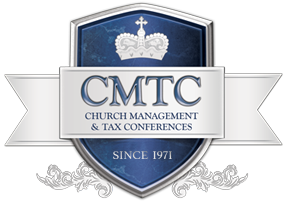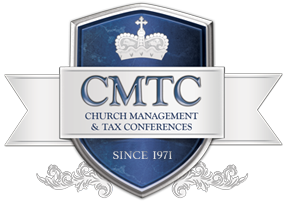Just Because It Feels Right Doesn’t Mean It’s Legal
In the complex world of Church ministry, many Pastors think they are doing a noble deed, when in reality they may be breaking the law. Since the Church is a non-profit entity and therefore exempt from taxes on its Tithes and Offerings, the IRS has page after page of regulations and directives that explicitly instruct how those non-taxable monies may be used and/or distributed.
Paying Money from the Offering
The Pastor wanted to show the stand-in musician his appreciation, so before the musician left the Church that morning, the Pastor reached into the Tithes and Offerings, removed $100.00 and gave it to the musician.
The Church van driver explained to the Pastor at the conclusion of the service that he had several people he needed to take home in the Church van, but the van did not have enough gas to make the trip. The Pastor reached into the Tithes and Offerings, handed the driver $20.00 and told him to bring the receipt back for audit trail purposes.
In both instances, the act may have been noble, but it was not legal. Cash cannot be paid from any offering.
Another Dilemma
The Head Trustee had notice that the Pastor had experienced more than his share of setbacks in the past few weeks. The family had an excessive amount of doctor visits, and the car broke down.
The Trustee approached the Church Treasurer and told him the Board wanted to help the Pastor and the Treasurer was to write a check to pay the Pastor’s mortgage payment for that month and make it payable to the Mortgage Company.
What a noble, expression of love to their Pastor. Unfortunately, it was illegal.
Just because an act is decent, kind, noble, or countless other adjectives we choose to use, does not make the transaction legal.
The Proper Way
In the first scenario, the musician should have been asked to complete some IRS documentation and a check should have been written to him as taxable income. With the van, a check should have been written to the gas station where the gas would be purchased, the Church credit card should have been used, or the driver could have purchased the gas with his own money and with a proper receipt he could have been reimbursed with a Church check.
For the Trustee and Pastor dilemma, a love offering could have been received and included in the Pastor’s W-2 at the end of the year.
For those dealing with love offerings for the Pastor, please make sure that those offerings are reported and do not push the total Church payroll beyond 32.6% of the total Church income for any given year.
What Difference Does It Make?
In all of the above mentioned scenarios, the Board was in agreement with the action taken. However, just because it feels right—just because the Board voted for it, doesn’t mean it is legal.
All Church officials should understand that people are watching their actions. The Church Treasurer or anyone who may have witnessed the above actions could have easily turned the Pastor, Trustee, and Church into the IRS and would probably have received a reward for their actions.
Many Church members do not really love the Pastor or the Trustees – they tolerate them. If they see something which seems inappropriate or they know violates laws, they will report it. Thousands have been reported by Church members throughout the years.
I was teaching a Church and Clergy Tax Conference in Texas and a lady at the front table laughed the whole morning. At break I asked her what it was in my presentation that she thought was funny? Her reply was that she was laughing because she had just reported her Pastor and Board Members to the IRS for the very things of which I was warning the class.
The days of Church members blindly following or trusting a Pastor or Board are gone. We should go to great lengths to ensure proper accountability when dealing with God’s money.
In Conclusion
For 80 years, Chitwood & Chitwood has been helping Pastors, Churches, and Church Boards maintain integrity in their bookkeeping practices. At 150 Church and Clergy Tax Conferences across the USA each year, we go in depth to warn those in attendance of the IRS compliance issues which Churches face daily.
It would benefit every Pastor and Church Leader to attend the conference nearest you. Do not attend alone – bring the whole Board including the Pastor. Contact us at 800-344-0076, or www.cmtc.org to register.
Do not allow what you consider noble to be your ticket to prison. Learn the law and obey it. We are here to help.
For us this “Is a Ministry – Not A Job!”

